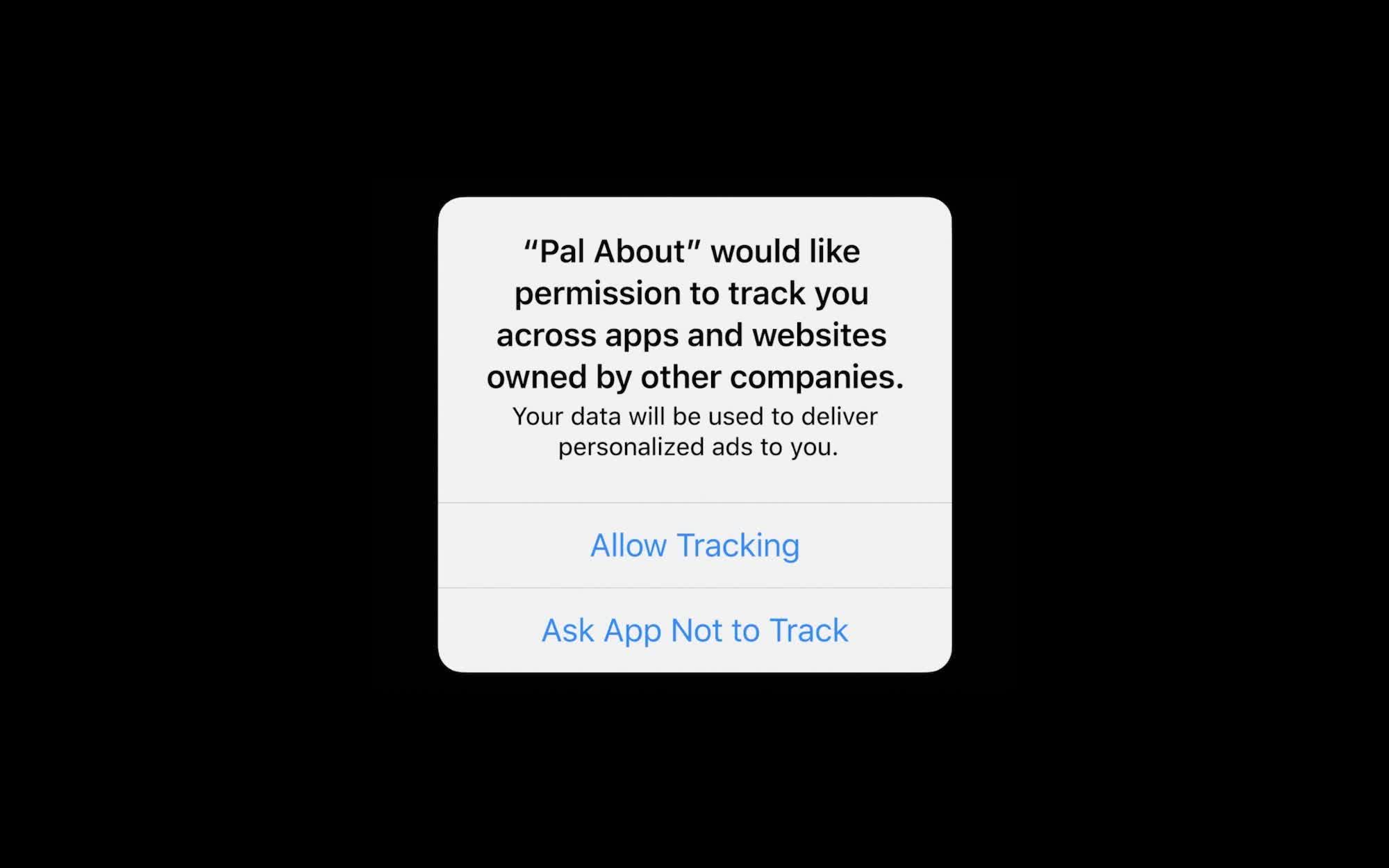A hot potato: Developers fearing an adpocalypse brought on by Apple's new privacy rules and features are already looking for ways to continue tracking iPhone users that opt-out of data collection. Some have said they are even willing to risk being kicked off the platform by bending or outright breaking Apple's rules.

In June of last year, Apple announced that new privacy features were coming in iOS 14. The new protocols would give users the choice to allow or deny data collection on a per-app basis. Apple delayed implementing the new feature to "early 2021" after backlash from advertisers, Facebook, and Google.
Now with the gatekeeping feature set to go live in the coming weeks, app makers are reportedly looking for ways to get around it. Ars Technica spoke with developers who said they would use "invasive tracking techniques," such as "device fingerprinting," to continue tracking users who have denied their app permission.
"100 percent, everyone will try doing fingerprints, whether Apple enforces their rules or not," said one mobile game designer speaking anonymously.
If Apple does enforce the rules, such actions could get the developer kicked off the platform. Even though iOS 14 will block apps from using an iPhone's IDFA, there is nothing in the software, preventing programmers from figuring out other ways to track user data. Even the Electronic Frontier Foundation does not believe iOS 14's new features will eliminate tracking.

"There is still going to be tracking," said EFF's Director of Consumer Privacy Engineering Andrés Arrieta. "We will still see apps trying to do nefarious things. No matter what you do, you will have those bad actors."
However, we are not just talking about fly-by-night "bad actors." Some "large" game developers are very concerned about the impact of giving users the choice to turn off ad tracking.
"This is a huge, huge change. It's the biggest risk that we have [as a company]... it could really affect us negatively," a leading mobile games developer told Ars Technica.
Facebook warned developers on its Audience Network platform that the new feature could cut ad revenues by 50 percent, calling that a "conservative estimate." Others have predicted advertisers could lose as much as two-thirds. However, nobody knows what kind of impact the privacy feature will have on advertisers. This uncertainty is leading many developers to consider breaking the rules or looking for loopholes. Even Google has shown some concern over Apple's new privacy crackdown.
As we reported earlier this week, the search giant has not updated any of its iOS apps since before Apple's App Store privacy "nutrition" labels took effect on December 8. Only new apps or updates to existing ones are required to fill out the data collection labels, so Google seems to be postponing sharing its collection practices for as long as possible.
Perhaps even Google's engineers are exploring workarounds for tracking users without access to a device's IDFA, but that is just speculatory. Google has not agreed to comment on the matter.
https://www.techspot.com/news/88195-scared-ios-developers-seek-ways-subvert-upcoming-privacy.html